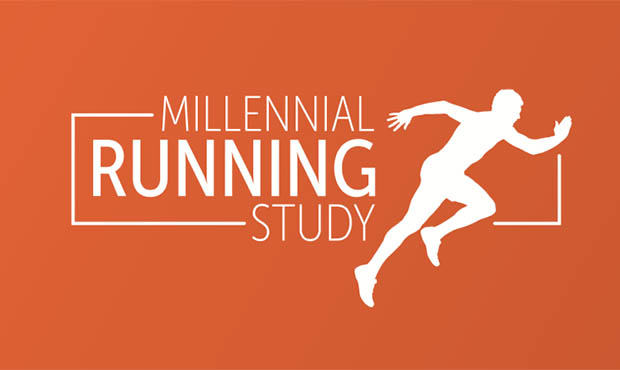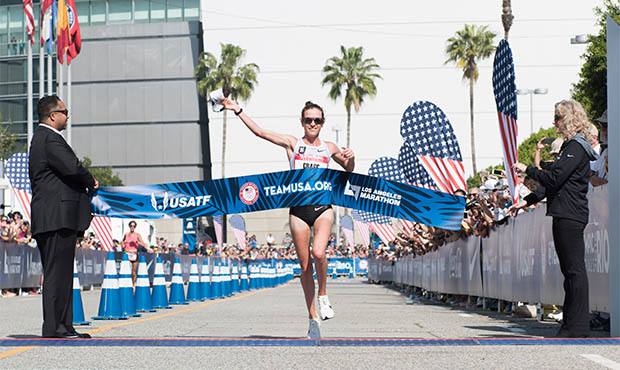Welcome to our "Coolest Things" series. Each week, the running editors at ACTIVE.com will tell you about the coolest things happening in the running industry so you're never a step (or fartlek) behind. See last week's post here.
First-Ever Study on Millennial Runners Released

The millennial generation is a big target for marketers and businesses trying to reach the largest consumer group since the Baby Boomers. With annual buying power of over $200 billion, Generation Y is influencing business decisions, from company structure to corporate economic and social policies.
The sport of running is no different.
Driven by the large numbers of millennials participating in running events, Running USA and RacePartner worked together on the first-ever study of the running habits of those born between 1980 and 2000. And their findings, while not necessarily surprising, are notable.
A few key points from the study:
- Demographics: Millennial runners are strongly female and white, at 73 percent and 79 percent, respectively.
- Millennial Runners Have It Together: 47 percent have Bachelor's Degrees, 28 percent have Master's Degrees and 79 percent are employed full-time.
- Half Crazy: The most popular distance for millennials is the half marathon (65 percent of millennials have run 13.1 miles), followed closely by the 5K (64 percent), the 10K (48 percent) and a full marathon (30 percent).
- Get Your Fitness On: When asked why they run, millennials list, in order of popularity: to improve physical health, to maintain that health and to run in a new or unique environment.
- Which Race to Choose: When choosing a race, millennials first consider the distance, followed by the registration cost, then whether or not the event is timed and, lastly, if results are instantly available.
- Good Intentions: While millennials generally tend to be charity-focused, philanthropy does not make or break their running decisions. Nearly all survey respondents have participated in a running event that supported a cause or charity—but it was not the primary reason they participated.
To check out the full set of data, download the study here.
The 2016 Olympic Marathon Team is Set

Photo credit: USATF.
The Men's Race
Last weekend, on an unseasonably hot February day in Los Angeles, marathon runners sweated it out in an effort to make the 2016 USA Olympic Marathon Team.
After 26.2 drama-filled miles, the men's and women's teams were set, with the top three finishers of each gender heading to Rio.
In the men's race, marathon newcomer Galen Rupp stole the show with a commanding win. With a time of 2:11:11, Rupp finished more than a minute faster than the second-place finisher, fan favorite Meb Keflezighi.
Rupp has already seen success on the track, with seven 10,000-meter wins at the USATF Outdoor Championships. He also has a silver medal from the 2012 Olympics, where he ran a 27:30.90 10,000-meter race.
With his runner-up finish, Keflezighi made his fourth Olympic team and will be the oldest American Olympic marathoner, at 40 years old (or 40 years young, in Meb's case). His time of 2:12:20 also broke his own U.S. Masters marathon record.
Jared Ward rounded out the men's team with a third place finish of 2:13:00. This will be his first appearance on the U.S. Olympic Team.
The Women's Race
The women's race came down to the final few miles, after training partners Amy Cragg and Shalane Flanagan led the pack by nearly a minute for much of the race's latter half.
When Flanagan started to struggle at mile 24, Cragg stayed with her, encouraging and coaching her training partner along. As their collective pace slowed, Flanagan repeatedly told Cragg to leave her—and finally, she did.
Cragg took the women's race with a time of 2:28:20 and made her first Olympic marathon team.
Flanagan's troubles continued as she pushed on solo, with Desiree Linden overtaking her for second place. Linden finished with a time of 2:28:54, making her second Olympic marathon team—redeeming herself after dropping out of the 2012 Olympics due to an injury.
But because Cragg and Flanagan were so far ahead for most of the race, Flanagan hung on to third with a time of 2:29:19, barely making her fourth Olympics.
In dramatic fashion, Flanagan collapsed into Cragg's arms upon crossing the finish line and had to be treated for heat-related illness.
Longtime fan favorite Kara Goucher finished fourth, just missing what would have been her third Olympic marathon team.
To learn more about the U.S. Olympic team, visit TeamUSA.org. The Olympics begin August 5 on NBC.


